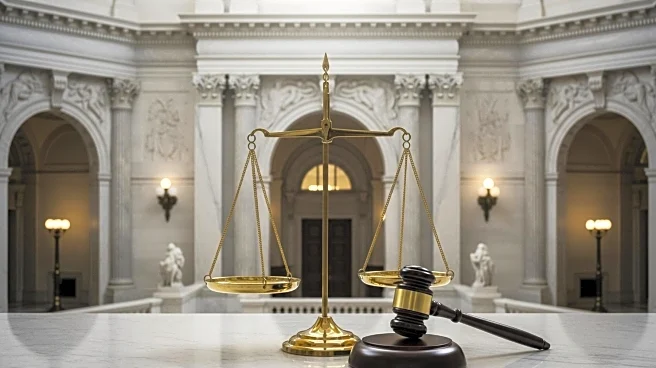What's Happening?
The Supreme Court has permitted the Trump administration to continue withholding over $4 billion in foreign aid that Congress had approved. This decision follows an appeal by the administration against a federal judge's order to release the funds by the end of September. The court's conservative majority justified the decision by emphasizing President Trump's foreign policy authority, suggesting that the international aid groups suing may lack standing. Justice Elena Kagan dissented, criticizing the expedited process and lack of thorough deliberation. The administration's use of a 'pocket rescission' to bypass Congress is a rare move, not seen since the 1970s.
Why It's Important?
The ruling highlights the expanding scope of presidential power in foreign policy and budgetary matters, potentially altering the balance of power between the executive and legislative branches. By allowing the administration to withhold funds, the court has set a precedent that could affect future foreign aid allocations and U.S. international relations. The decision may impact global health and development programs, as well as the United States' role in international peacekeeping and humanitarian efforts. Critics argue that this undermines Congress's constitutional authority over government spending.
What's Next?
In response to the Supreme Court's decision, Democratic lawmakers are calling for Congress to reaffirm its control over the budget. With the fiscal year ending soon, there is limited time for legislative action. The administration's use of a 'pocket rescission' raises legal questions and could lead to further challenges. The decision also coincides with budget negotiations, with the risk of a government shutdown if a new budget is not passed. The ruling may prompt discussions on the legal and constitutional implications of presidential budgetary control.
Beyond the Headlines
The Supreme Court's decision may have long-term implications for the legal interpretation of presidential authority in budgetary matters. The use of emergency applications and the court's expedited ruling process raise concerns about judicial transparency and accountability. Additionally, the decision could affect U.S. diplomatic relations and international cooperation, as countries relying on American aid may face challenges in implementing development and health initiatives.









